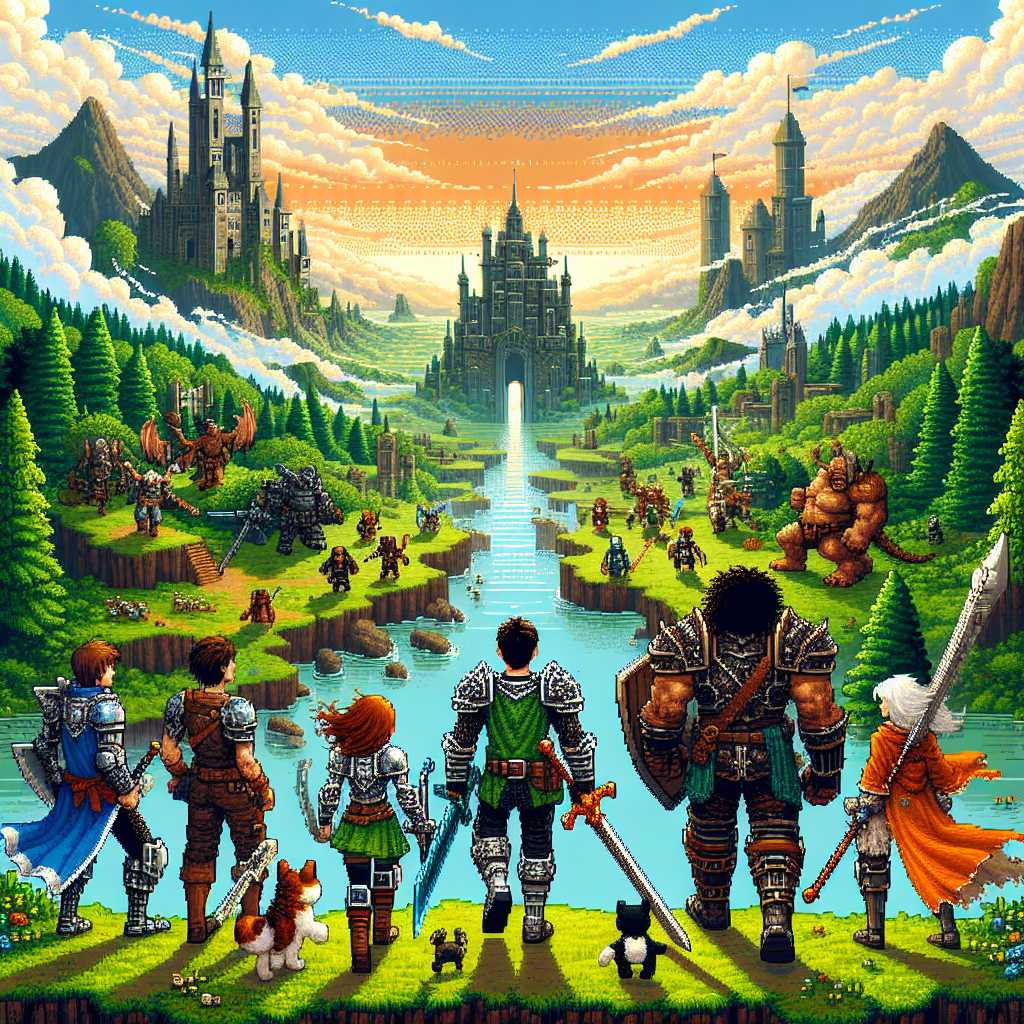Example Article
The Genesis and Evolution of Tibia
Launched in 1997 by CipSoft, Tibia stands as one of the earliest massively multiplayer online role-playing games (MMORPGs), predating many of the genre’s household names. Developed initially by four students from the University of Regensburg, Tibia’s humble beginnings involved simple graphics and straightforward gameplay mechanics. Despite its modest start, the game rapidly attracted a dedicated community eager for an open world where player interaction and exploration were paramount.
Throughout its life, Tibia has undergone numerous updates that expanded its content, refined gameplay, and introduced new features. Unlike many modern MMORPGs that focus heavily on graphical fidelity, Tibia prioritised depth in gameplay and social interaction. This approach helped it maintain a loyal player base even as gaming technology evolved dramatically.
Tibia’s longevity is remarkable in an industry often characterised by fleeting trends. Its commitment to community-driven content and developer transparency has fostered a unique bond between players and creators. The game’s evolution reflects a balance between nostalgia and innovation, ensuring that it remains relevant more than two decades after its release.
Gameplay Mechanics and Community Dynamics
At its core, Tibia offers a classic RPG experience with character classes, quests, monster hunting, and skill progression. However, what sets it apart is the open-ended nature of player interactions. PvP (player versus player) combat is integral to the game, creating both opportunities for rivalry and cooperation. This aspect adds a layer of tension and excitement rarely found in other MMORPGs.
The game’s skill system encourages gradual improvement through repeated actions rather than instant level-ups, cultivating a sense of achievement tied to effort. Additionally, the economy within Tibia is largely player-driven, with trading playing a crucial role in acquiring rare items or resources.
Community events and guilds further enrich the social fabric of Tibia. Players organise hunts, trade fairs, and tournaments that generate vibrant in-game culture. The developers have also been responsive to player feedback, often incorporating community suggestions into updates. This dynamic interplay between developers and players creates a living world where everyone feels invested.
Tibia’s Influence on Modern MMORPGs
Despite its niche status compared to blockbuster titles like World of Warcraft or Final Fantasy XIV, Tibia’s influence on MMORPG design is significant. Its emphasis on player freedom, risk versus reward mechanics, and persistent worlds has inspired many newer games. For instance, the concept of open PvP zones with meaningful consequences can be seen echoed in various contemporary online games.
Moreover, Tibia demonstrated early on that a game could thrive without cutting-edge graphics if it offered compelling gameplay and social engagement. This lesson resonates today as indie developers create successful multiplayer experiences focusing on innovation rather than visuals.
Tibia also highlighted the importance of community management in sustaining online games long-term. CipSoft’s transparent communication channels and willingness to moderate harsh behaviours while encouraging healthy competition serve as best practices for other MMORPG operators.
Challenges and Future Prospects
Like many legacy games, Tibia faces challenges related to modernisation and attracting new players. The retro aesthetic may deter gamers accustomed to high-definition visuals and cinematic storytelling. Additionally, evolving player expectations around accessibility and convenience require careful balancing to avoid alienating veteran users.
However, CipSoft continues to invest in technological improvements such as better client stability, anti-cheat measures, and quality-of-life features without compromising the game’s core identity. Recent expansions have introduced fresh content that appeals both to nostalgic players and newcomers seeking depth.
Looking ahead, Tibia’s future likely hinges on its ability to innovate thoughtfully while preserving the aspects that have made it beloved for over 25 years. Its enduring community remains a testament to how MMORPGs can thrive through a shared passion for exploration, challenge, and camaraderie.
Conclusion: The Timeless Appeal of Tibia
Tibia’s journey from a university project to a pioneering MMORPG exemplifies resilience in the fast-paced gaming industry. Its commitment to rich gameplay mechanics and fostering a strong player community has allowed it to endure beyond many contemporaries.
By prioritising depth over graphics and valuing player agency above all else, Tibia carved out a unique niche that continues to inspire both players and developers alike. While it may never claim mainstream dominance, its cultural impact within the MMORPG genre is undeniable.
Ultimately, Tibia’s legacy lies in proving that passion-driven development combined with an engaged community can create experiences that stand the test of time.
Notes
- Tibia was one of the first MMORPGs available worldwide free-to-play.
- The game currently hosts thousands of active players daily despite being over 25 years old.
- CipSoft regularly implements community-driven updates based on player feedback.

